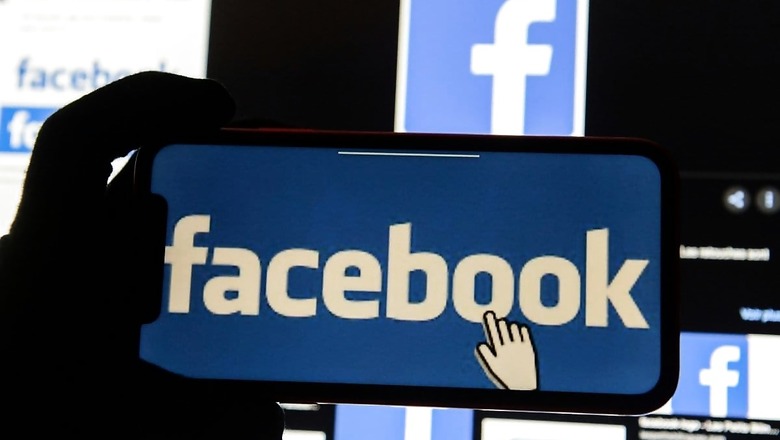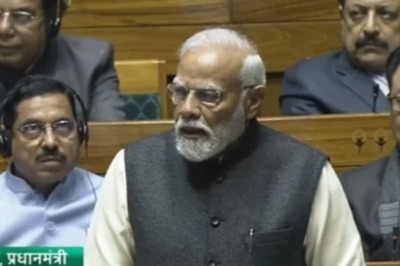
views
A former Facebook employee has exposed the social media giant’s complacent and seemingly ignorant attitude towards taking action against world leaders who abuse the platform for political gains. In a 6,600 page memo, Sophie Zhang, who worked as a data scientist at Facebook, has claimed to reveal huge gaps in Facebook’s functioning, especially when it concerns acting against political manipulation. The memo also revealed how a junior employee at Facebook wielded extraordinary moderation powers, how the company takes matters concerning million of users surprisingly lightly, and the fact that the social media giant’s decisions are largely motivated by public relations, rather than real world problems.
In the memo, accessed by Buzzfeed news, Zhang said that she found multiple attempts by governments to abuse Facebook’s influence and mislead their own citizens, and highlights Facebook’s inability to act effectively. “In the three years I’ve spent at Facebook, I’ve found multiple blatant attempts by foreign national governments to abuse our platform on vast scales to mislead their own citizenry, and caused international news on multiple occasions,” Zhang wrote.
Zhang’s memo also uncovered a politically sophisticated network of more than a thousand actors who were trying to influence the Delhi elections that took place in February. She further said that Facebook never disclosed this network, which was trying to meddle with Delhi elections, or the fact that it has been removed.
This comes shortly after a report had revealed that a Facebook executive had stopped employees from applying the company’s hate speech policies to the ruling party politicians who posted anti-Muslim hate speech in India.
More Revealings From Zhang’s Memo
According to the Buzzfeed report, Zhang said in her memo that Facebook took nine months to act on a coordinated campaign that used thousands of inauthentic assets to boost Honduras President Juan Orlando Hernandez on a massive scale to mislead the Honduran people. Further, she revealed that the perpetrators returned in July, and are still active after multiple attempts to knock them off the platform.
In Azerbaijan, Zhang revealed that the ruling party used inauthentic assets to harass the opposition. She said that Facebook began to look into the issue one year after she reported it. In February 2019, a NATO researcher informed Facebook that he got to know about “Russian inauthentic activity on a high-profile US political figure”. Zhang said she removed the activity.
In Ukraine, Zhang found inauthentic activity supporting former prime minister Yulia Tymoshenko, as well as Volodymyr Groysman, a former prime minister and ally of former President Petro Poroshenko. Zhang also discovered inauthentic activity in Bolivia and Ecuador but chose “not to prioritise it,” due to her workload.
Zhang said that she, along with her colleagues, removed 10.5 million fake reactions and fans from high-profile politicians in Brazil and the US in the 2018 elections. She also reported on the manipulation of the Spanish Health Ministry’s Facebook page during the COVID-19 pandemic. She helped find and remove 6,72,000 ‘low quality’ fake accounts acting on similar targets globally.
Extraordinary Powers to Junior Executives
The memo by Zhang also highlights how a junior employee wields extraordinary moderation powers, that can possibly affect millions of people. “There was so much violating behaviour worldwide that it was left to my personal assessment of which cases to further investigate, to file tasks, and escalate for prioritisation afterwards. With no oversight whatsoever, I was left in a situation where I was trusted with immense influence in my spare time,” she was quoted as saying in the memo.
Zhang also mentioned that she often felt responsible when civil unrest took hold in places she didn’t prioritise for investigation and action. “I have made countless decisions in this vein – from Iraq to Indonesia, from Italy to El Salvador. Individually, the impact was likely small in each case, but the world is a vast place. Although I made the best decision I could based on the knowledge available at the time, ultimately I was the one who made the decision not to push more or prioritise further in each case, and I know that I have blood on my hands by now.”
Public Relations Over the Real World
Zhang also shed light on Facebook’s habit of prioritising public relations over real-world problems. She said that it’s an open secret within the civic integrity space that Facebook’s short-term decisions are largely motivated by PR and potential negative attention. She mentioned that was told directly at a 2020 summit that anything published in The New York Times or Washington Post would be prioritised.
“It’s why I’ve seen priorities of escalations shoot up when others start threatening to go to the press, and why I was informed by a leader in my organisation that my civic work was not impactful under the rationale that if the problems were meaningful they would have attracted attention, became a press fire, and convinced the company to devote more attention to the space.”
Facebook’s Response
News18 reached out to Facebook for its response on these allegations. While the statement addressed the issue of coordinated inauthentic behaviour, spam and fake engagement on Facebook, it did not say anything about the company’s handling of the same, internally. Following is the statement:
“We’ve built specialised teams, working with leading experts, to stop bad actors from abusing our systems, resulting in the removal of more than 100 networks for coordinated inauthentic behaviour. It’s highly involved work that these teams do as their full-time remit. Working against coordinated inauthentic behaviour is our priority, but we’re also addressing the problems of spam and fake engagement. We investigate each issue carefully, including those that Ms. Zhang raises, before we take action or go out and make claims publicly as a company.”




















Comments
0 comment